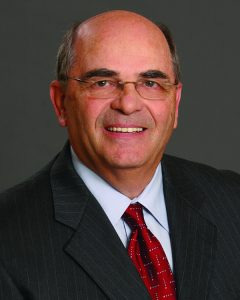April/May 2020 issue Thought Leaders for MCOL Members
Hank Osowski
Posted: April 2020
![]() [Printable Version]
[Printable Version]
What changes in the business of healthcare are taking place during this pandemic that will most likely continue when the pandemic is behind us?
The depth of the turmoil and disruption that has gripped our nation during the last few months has been unprecedented. The near complete shutdown of most businesses, rising unemployment and mandatory stay-at-home orders are the new, and hopefully temporary, order. For the healthcare industry, the pandemic has created a perfect storm of challenges and difficulties that has exposed significant weaknesses at a time when compassionate care was critical.
As an industry, we have learned valuable lessons from this current crisis and many of these learnings are already shaping our future. Telemedicine visits are now recognized by CMS for reimbursement and may become the catalyst for a paradigm shift in how care is delivered. This will likely impact staffing and real estate models. Clinicians are learning and quickly adjusting care protocols in real time. The use of video conferencing tools have become mainstream and will likely influence the future of where and how we work.
What is disturbing however is how reactionary the response has been for many sectors of the healthcare industry. While few would have predicted the size and scope of this pandemic, those healthcare organizations that did create contingency plans as an integral part of their strategic and operational planning processes were far better positioned to respond quickly and effectively. They were able to execute on well-conceived and practiced contingency plans rather than trying to decide on the fly how to appropriately respond to dramatically changing business conditions. Those who had contingency plans in place were able to quickly allocate limited staff and equipment resources where they were most needed to care for critically ill patients. This planning and preparation gave these healthcare leaders a significant head start in responding to the healthcare needs of their community over colleagues who were considering these challenges, strategies and tactics for the first time. You do not want a catastrophic event, whether an earthquake, hurricane or pandemic, to be the first time you are considering if your organization is prepared to respond to a major disruption.
We trust that those organizations that had contingency plans in place will review, evaluate and strengthen those contingency plans when this pandemic has subsided. For those healthcare organizations that were not as well prepared, perhaps the challenges and pitfalls of being reactionary rather than thoughtful will hopefully incent them to undertake such a planning process to be prepared for the next crisis. The demands and pressure on the healthcare industry has been increased exponentially on facilities, equipment, supplies and personnel by this pandemic. Doctors, nurses, support staff, first responders and so many others continue to do extraordinary work and demonstrate incredible dedication in the face of a silent enemy that is wreaking havoc with so many of our fellow citizens. A simple, though heartfelt, thank you does not seem to be adequate for their heroic efforts.

Henry Osowski
Managing Partner, Strategic Health Group
Burbank, CA
